You Are Special
A "What If" story imagining a road trip between pastor and theologian Henri Nouwen and television host and minister Fred Rogers
"Mister Rogers holds a special place in the hearts of most Americans of a certain age, me included. His genuine love of the world and all the people in it is something to be admired and respected. I'd not heard of Henri Nouwen until I started working on this story and seeing his love for the special needs community gave me a Mister Rogers amount of respect and love for him as well.
All that being said, I felt the cover for this story, warranted more than a single color and black/white. It also speaks to variety of people they actively influenced."- Wade McComas, Illustrator
“Christian leaders are called to help others affirm this great news, and to make visible in daily events the fact that behind the dirty curtain of our painful symptoms there is something great to be seen: the face of God in whose image we are shaped.”
― Henri J.M. Nouwen, The Wounded Healer
I grew up with Mr. Rogers. Yes, my father was Mr. Rodgers, but the OTHER Mr. Rogers was a regular in our neighborhood, at least via our TVs, And interestingly, they both were “Reverands” as well.
Fred Rogers was part of the fabric of Pittsburgh. He was a local celebrity, and also a neighbor to us all.
As a graduate of Pittsburgh Theological Seminary and an ordained Presbyterian minister, Mr. Rogers was part of the theological milieu of Pittsburgh I grew up in. My father was President of an Anglican seminary, and at one local gathering he and my mother, who had prematurely white hair, were with Mr. Rogers, who smiled when he met her and said “Your hair is just lovely.”
I don’t know how self conscious she was about her hair, but she did tell that story for years. He had a knack to make people feel good about themselves. To feel accepted. To feel loved.
My favorite episode of The Neighborhood, and one that I have shown in many settings, is when Mr. Rogers and Jeff Erlanger shared a memorable and heartfelt moment in 1981 that has resonated with audiences for decades.
Jeff Erlanger was a young boy from Madison, Wisconsin, who became quadriplegic after surgery to remove a spinal tumor when he was just seven months old. At age 10, he appeared on the show to demonstrate his electric wheelchair and discuss his experiences living with a disability. Their conversation was unscripted and authentic, touching on topics like medical challenges and feelings of sadness. The segment concluded with the two singing “It’s You I Like,” creating one of the most cherished moments in the show’s history .
Fred Rogers later described this visit as his most treasured moment on the show, highlighting the genuine connection and mutual respect between them. Their bond continued beyond the episode; in 1999, Jeff surprised Fred by introducing him at his Television Hall of Fame induction, prompting an emotional reunion.
Although he didn’t use spiritual language on his show, Mr. Rogers understood that he was speaking one of the deepest of theological Truths when he said: “You are special. There is no one like you. You are loved.” This is why he went into television as his ministry.
In fact, he called the space between the viewer and the TV screen "holy ground.” It was his pulpit.
One of the books I read early in my career on Capitol Hill on servant leadership was Henri Nouwen’s The Wounded Healer. In which he wrote “The beginning and the end of all Christian leadership is to give your life for others.”
Henri Nouwen was a Dutch Catholic priest, theologian, and spiritual writer known for his deeply personal and accessible reflections on Christian spirituality, compassion, and the human condition. Born in 1932, he taught at prestigious institutions like Yale and Harvard before leaving academia to live and work with people with intellectual disabilities at the L'Arche Daybreak community in Canada. Nouwen’s writings, such as The Return of the Prodigal Son, combine psychological insight with profound spiritual depth. His writing is very devotional, and intimate. As an Evangelical, I resonated with his focus on Jesus, and as an Anglican, I resonated with his commitment to community, prayers and disciplines of the Chrsitian life.
While working in the US Senate leadership as Staff Director of the Senate Republican Conference, I had the privilege of inviting guests to the exclusive Senate Members’ Dining room in the Capitol. In 2001 a few of us in the Senate, including my boss Senator Rick Santroum, started meeting with leaders in the media to talk about the impact that their content was having on children. In 2002 we had lunch with Mr. Rogers to talk about his work. I recall describing to him the (original) Clapham Group’s "reformation of manners” effort to “make goodness fashionable” as a way to frame our efforts related to media, and he liked that. We were all soul mates.
During one of the pauses in our lunch, when Sen. Santorum stepped out for a vote, I recall asking Mr. Rogers what he was reading or had read that was spiritually consequential to him. He asked me to answer first (I was reading Bonhoeffer’s Cost of Discipleship) and then he shared his: In The Name of Jesus, by his friend Henri Nouwen. Then he told me its story.
While at L'Arche Daybreak, Henri received an invitation to come to Washington, DC to speak to Christian leaders in need of emotional and spiritual wholeness about “servant leadership.” At this point Henri wasn’t traveling as much, but was encouraged by the community to go and in the spirit of Jesus’ sending of the twelve, take one of the residents with him. He couldn't go alone to talk about them, they discerned, but needed one of them to go with him.
Bill volunteered. Together they traveled to Washington for the speech. Although in reality they flew, in our comic we imagine a road trip during which they stop in Pittsburgh to visit Mr. Rogers. This is a “What If” story, as Marvel comics called it.
A few days before the lunch with Mr, Rogers, my wife, Leanne, and I had attended a play at the Kennedy Center called Stones in His Pocket, alluding to the stones that weighed down the dashed hopes of an Irish character as he waded into a local lake to his death. Typical light, Irish humor. At some point during the lunch I mentioned the play, the despair of this Irish character, and the eventual disappointment that we all experience when we pin our value, dreams and hopes on temporal things.
After hearing about the play and sharing with me about In the Name of Jesus, Mr, Rogers reached into his pocket and pulled out a small, worn cross.
It was taped together and dirty from years of being held. He told me he carried it wherever he went. It was made by the residents of L'Arche Daybreak Community from the wood fragments remaining from the coffin they built for Henri. Mr. Rogers carried it everywhere he went to remind himself that everyone– and I mean EVERYONE– he saw and encountered was made in God's image.
I’ve thought about this often. What we “carry” in our pocket will color our view of and guide our path in life. To be salt and light, we need to carry the cross of Jesus in our pocket. Everyday. Everywhere. To affirm the innate value of everyone, no matter who they are.
When Mr. Rogers, on his show on PBS, said “You are special” he was shedding light. When he spoke before the Senate committee and explained why public broadcasting was a national treasure, he was being salt.
When Henri Nouwen lectured at Yale and Harvard, and when he spoke to national leaders, he was shedding light. When he ministered to men and women without the capacity to read the books he had written, he was being salt.
The question we need to ask ourselves regularly, is what is our pocket today?


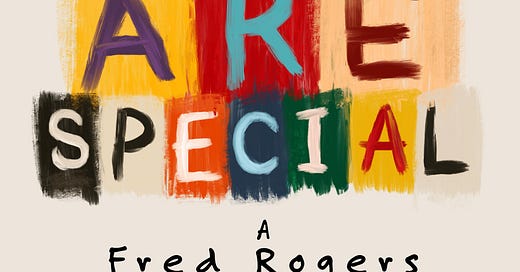





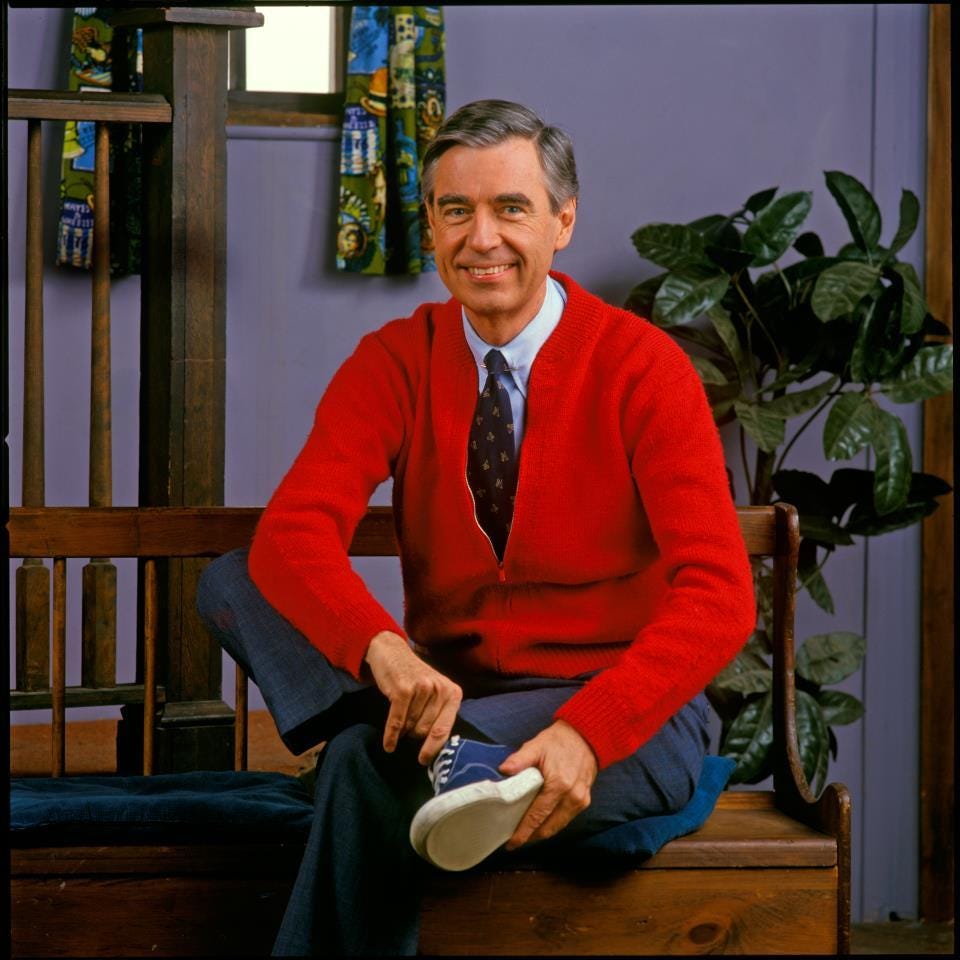
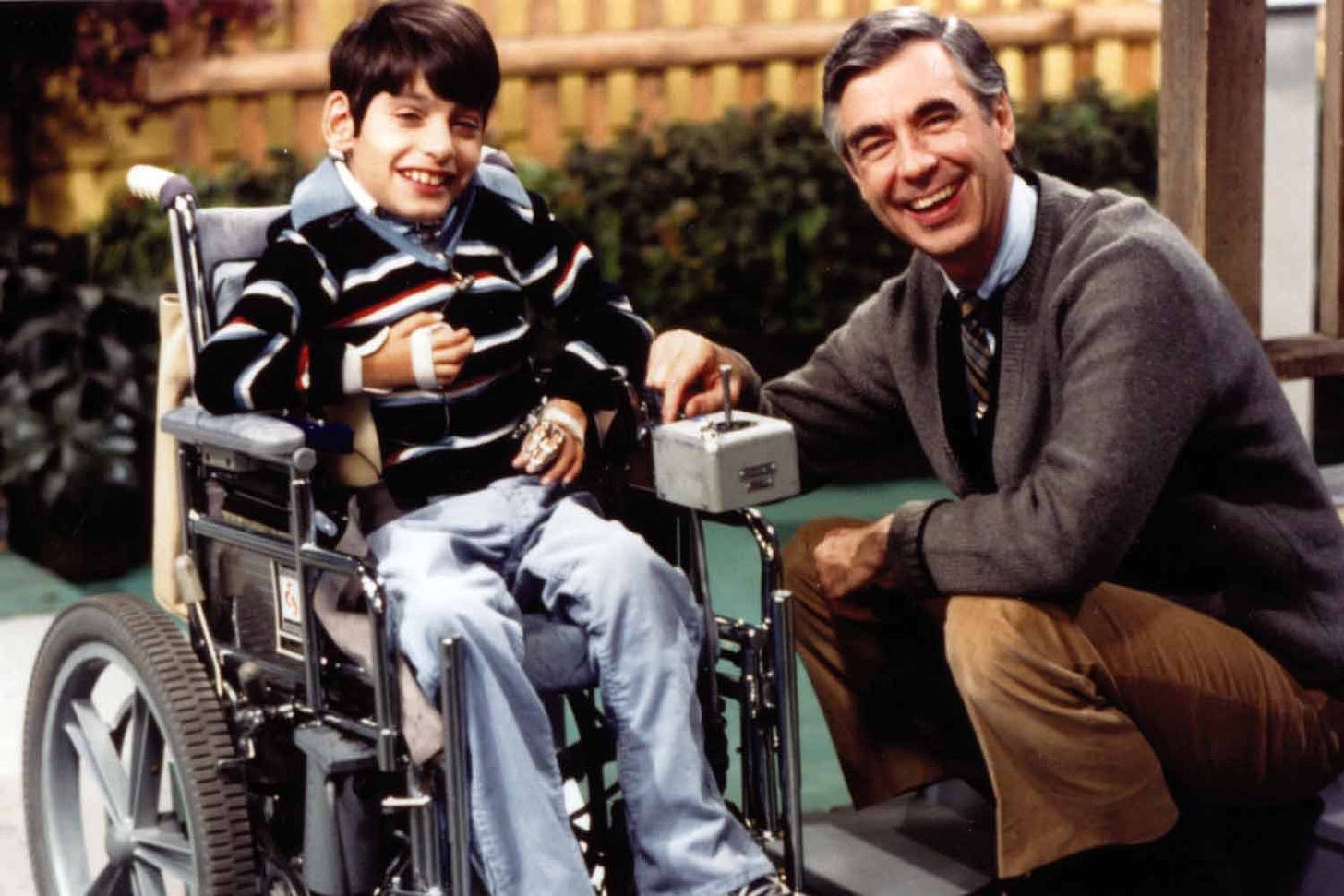
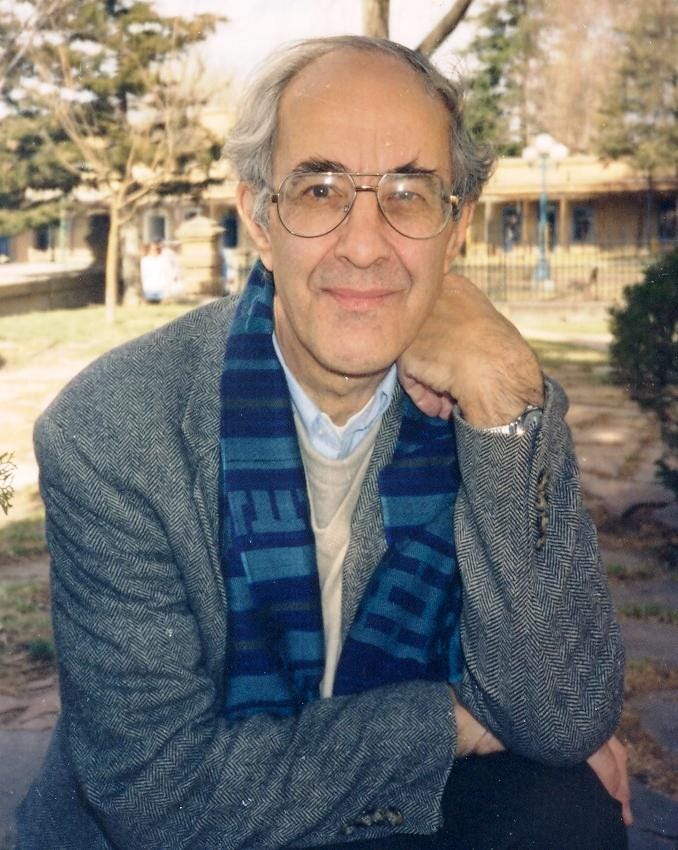
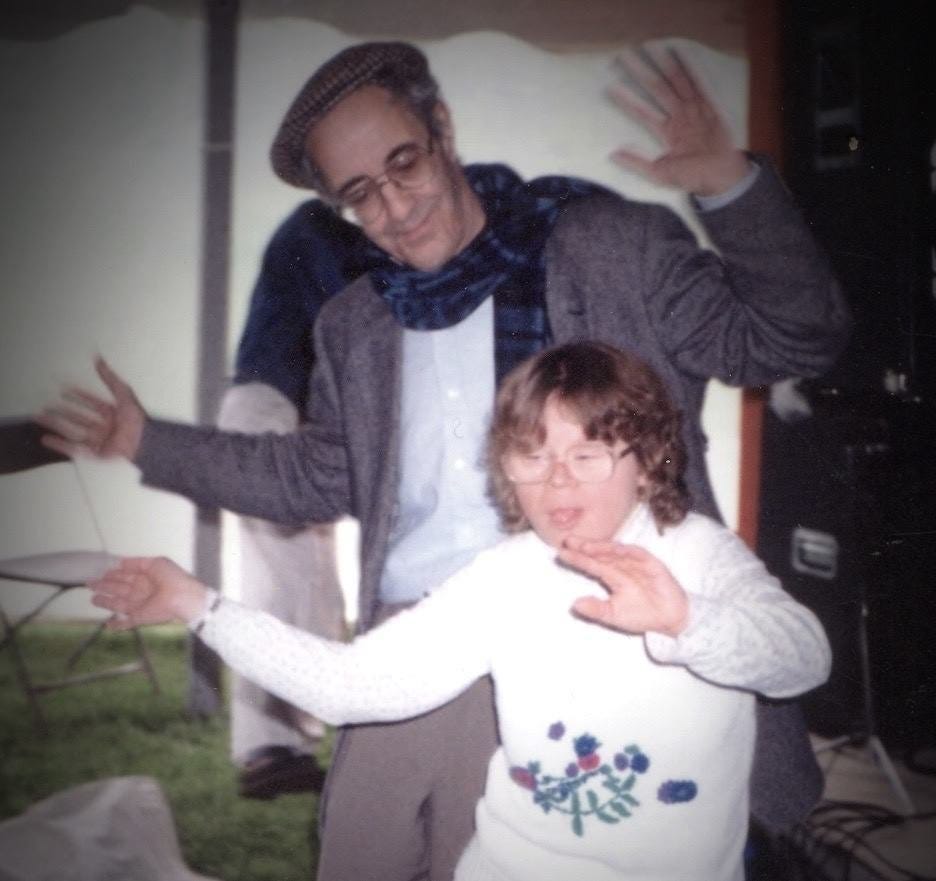
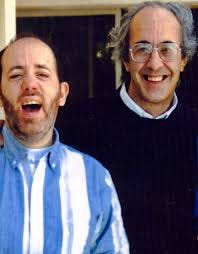
You are more special than you can ever imagine. https://open.substack.com/pub/abforbes/p/consider-yourself-extremely-special?r=yn8c0&utm_medium=ios
What an amazing pairing of these two men...both such enligthtening servants in the careers God led them to. I am excited for your book project and pray you the best success with it for its message is one greatly needed for us all.